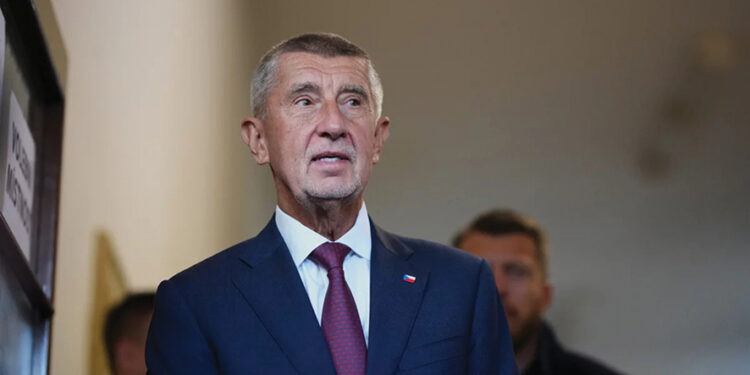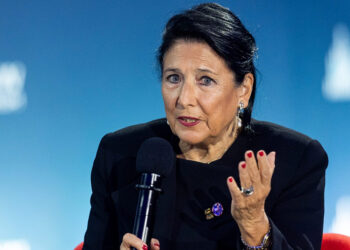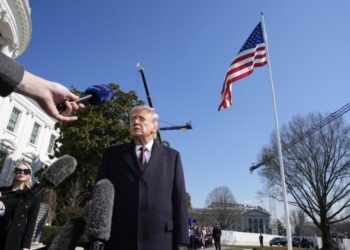Pavel Havlícek, Czech political analyst and expert on Central European affairs, sat down with RFE/RL’s Georgian Service to unpack the results of the country’s recent parliamentary elections — a vote that delivered a striking victory for former Prime Minister Andrej Babiš and left the ruling coalition reeling. He discusses what these shifts mean not only for Czech domestic politics, but also for the country’s foreign policy, its stance on Ukraine, and its relationships with partners like Georgia.
Let’s begin with the basics: What just happened in this election? Who came out ahead — and who didn’t?
The headline story is the strong performance of Andrej Babiš, the former prime minister. He secured around 35% of the vote, higher than any result he’s achieved in the past. That’s significant not just numerically, but symbolically. He successfully consolidated a broad segment of the anti-establishment electorate, drawing support from both far-left and far-right voters. That shift likely explains why traditional pro-Russian and fringe parties did so poorly: the far left failed to even cross the 5% threshold needed to enter parliament, and far-right groups, despite polling projections of 14–15%, ended up with under 8%. The ruling Spolu coalition was the biggest loser, dropping roughly 20 seats — a serious blow to its influence and standing.
What secured Babiš’s triumphant victory? And what’s behind the ruling party’s failure?
That’s where it gets more complex. In absolute terms, the coalition actually performed relatively well, securing over 23% of the vote. A drop from 27 to 23 isn’t a crushing defeat, especially considering they beat Babiš last time by just one seat. What propelled Babiš to unprecedented heights was his ability to rally non-committed voters, many from disadvantaged regions, who backed him in hopes of improving their living conditions.
Being a billionaire businessman, one assumes Babiš knows how to sell his product. What was his selling pitch to the Czech voter, and why was it so appealing?
Essentially, it was a promise of major socio-economic redistribution. His campaign was largely focused on domestic issues, painting a contrasting picture to what the current government offered — namely, a focus on foreign policy, security, and defense: “We are the ones defending Czechia from Russia; we managed to wean Czechia from Russian gas.” Whereas Babiš was basically saying, “Look, I’m not the radical they make me out to be. We don’t want to make any radical moves. We want to stay in the EU and NATO — but we will criticize the EU for interfering in our domestic affairs.”
Is he going to have any trouble forming a coalition with Freedom and Direct Democracy (SPD) and the Motorists for Themselves?
We’re already seeing things move surprisingly quickly. The Motorists are demanding quite a few important portfolios in the new government, including the Ministry of Foreign Affairs, while SPD is asking for the Ministry of the Interior. We’ll see how much Babiš is willing to accommodate them — for example, it’s all but guaranteed that he won’t give up the Ministry of Defense.
What’s Babiš’s new Czechia going to look like — both domestically and externally?
I wrote an article called “The World According to Andrej Babiš,” emphasizing his focus on domestic dynamics. Domestically, he wants to return to some of his old projects — for example, electronic evidence of payments, a measure he introduced to fight the grey economy. He’s saying, “Look, we will mobilize resources.” He wants to strongly prioritize the private sector, which he sees as the main driver of growth, and he really wants to kick-start the economy.
Externally, it’s all quite simple and mostly negative: no to the EU migration deal, no to the Green Deal, no to Eurozone entry, and no to digital regulation. Babiš will be loosely following the Patriots for Europe narrative: “We’re a sovereign nation; we decide what’s best for us.”
Jumping into bed with people like Ivanishvili would definitely damage Babiš’s interests within the EU. He won’t be willing to pick up the baton for him
When it comes to NATO and Visegrad Four cooperation, he’s very much in favor. He says these are the transatlantic bonds that hold us together, that they’re important for our place in the world. He’ll want a good relationship with the White House, good relations with the neighbors, above all, of course, with Orbán.
So should we expect the Orbán & Fico union to turn into a triumvirate?
There will certainly be some level of normalization of relations, especially with Slovakia. Czech-Slovak relations are really poor at the moment because of clashing agendas, especially regarding Russia and Ukraine. So there will certainly be some effort at normalization. Babiš’s first foreign visit will be to Slovakia, where he’ll try to mend bridges. But as far as entering a fully-fledged partnership with Fico and Orbán — that’s unlikely.
He is and will remain a pragmatic figure. It’s in his interest to maintain good relations with Germany and France, where he does a lot of his business. He also wants to keep an open channel with Poland, another crucial country, not only in terms of national security, but also for his private business interests. Babiš wants to be a recognized and respected leader whose word carries weight; he has no intention of being Europe’s black sheep like Orbán. If he were to travel to Moscow and start negotiating with Putin about returning to Russian gas, he’d be burned at the stake back home in Czechia. You can only stretch the rope so far, and it’s already pretty thin. So it’s impossible for him to fully join ranks with Fico and Orbán in opposing the rest of Europe. He’ll be far more flexible than either of them.
What role will President Pavel play? Will he try to fight back against Babiš on foreign affairs and defense issues?
He’ll definitely act as a guarantor of the constitutional order and of Czechia’s traditional alliances. He feels very passionately about NATO and the EU. In the run-up to the elections, he bluntly said that if there’s a candidate for the Ministry of Foreign Affairs or Defense who questions membership in either of those alliances, he’ll outright veto their nomination.
There are also a number of other measures through which the president can make the government’s life quite difficult, and he won’t shy away from a fight if needs be. But at this point, especially early on, he’ll be quite tactical about it. He’ll pick his battles and focus on the big issues.
Would one of those big issues be the Czech initiative on arms delivery to Ukraine? What does Babiš’s return spell for Ukraine in general?
It’s hard to make any sweeping statements, but the support for Ukraine won’t be as outspoken as it was under the former government. The key question is how that will affect things on the ground. They’ll probably be reviewing a lot of things, but I don’t think they’ll cancel the initiative altogether.
Babiš wants to be a recognized and respected leader whose word carries weight; he has no intention of being Europe’s black sheep like Orbán
There’s both domestic and international pressure — domestically from the future opposition, and internationally from partners. I can already sense that they’ll probably try to find a new format for the ammunition initiative, maybe rename it, but not cancel it altogether. That would be a huge reputational risk, and economically it would make no sense. The initiative works by other countries coming to you with money, asking you to process things, and letting your companies earn, which in turn brings money into the state coffers. So Babiš would really be shooting himself in the foot if he did away with it.
What do you think the mood is in Moscow? Are they celebrating?
Maybe not celebrating, because their biggest allies in the Czech political scene didn’t even make it into parliament, but perhaps they have reason enough to smile. The very harsh anti-Russian rhetoric is definitely disappearing, and that, for sure, makes the Kremlin happier than it was with the outgoing government.
A question about the Georgian Dream party, whose leaders rushed to congratulate Babiš. Are they getting another ally in Brussels alongside Orbán and Fico? And of the sanctions that have recently been imposed — are they likely to be reversed?
At this point, it seems unlikely that there will be any major shift in relations between Prague and Tbilisi. Of course, the current Minister of Foreign Affairs, Jan Lipavský, has been criticized for being overly activist, for his tweets and such, and that tone will most likely disappear. But I don’t see the names of the Georgian government officials, or representatives of the repressive apparatus, being removed from the sanctions list.
But there won’t be any more names added to it either?
That’s true. It might slow down, but I’d say it’s still too early for Georgian Dream to celebrate and cheer for Babiš.
Do you see Babiš publicly endorsing Georgia in Brussels, much like Orbán does, saying, “These are good guys”?
No way. And the issue with Babiš is that it’s really not in his interest. There’s nothing about this matter that would occupy his attention to the degree that he’d feel the need to speak out and champion the cause.
Could Ivanishvili, as one billionaire to another, perhaps bring forth a persuasive argument to sway Babiš?
There’s no mutual interest there. And Babiš is very cautious — he has quite a good compass for these things, and he knows where something could actually harm him. Jumping into bed with people like Ivanishvili would definitely damage his interests within the EU, and he won’t be willing to pick up the baton for him. As I said earlier, he has no intention of becoming the new black sheep of Europe.
Interview by Vazha Tavberidze














